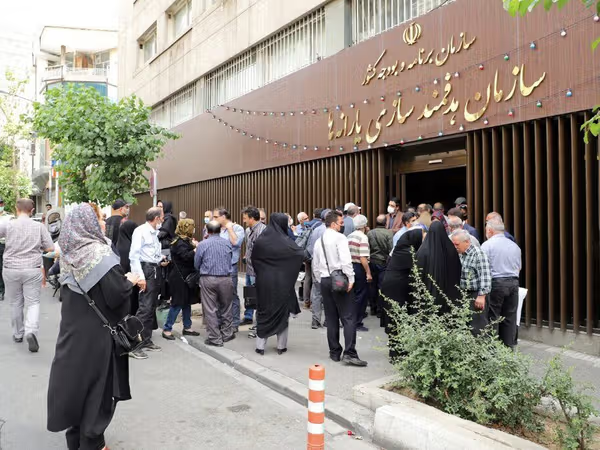Iran delayed cash subsidy payments for the last Iranian calendar month by a day citing insufficient funds, resulting in late payments for over 50 million people and underscoring the country's persistent economic malaise.
The government's Targeted Subsidies Organization, overseen by the Planning and Budget Organization, said on Thursday that the necessary funds from oil and gas revenues were not transferred to the government treasury, causing the delay.
Tasnim news agency quoted informed sources within the Planning and Budget Organization as saying that the Oil Ministry owes the Targeted Subsidies Organization approximately $700 million.
The monthly subsidy for Iran’s middle-income group, comprising 51 million people, is 3,000,000 rials (about $5) per person, requiring a monthly budget of about $255 million. The government also provides 4,000,000 rials (about $7) per month to low-income households, approximately 28 million people.
This means that the government needs a total amount of $440 million per month – or about $5.3 billion annually -- for the cash handouts. This is more than 6 percent of the total government annual budget.
With soaring inflation and a depreciating currency, the cash handouts have become almost meaningless for the vast majority of recipients.
In 2010 when then-President Mahmoud Ahmadinejad introduced the cash handout scheme, the amount was 450,000 rials, a huge boon at roughly $45 a person or nearly $200 a month for a family of four.
The average income of an Iranian wage earner was equivalent to about $350 then. Today, the amount is about $150 to $250.
The budget deficit for subsidies has been a persistent problem for the government over the past year. The budget bill for the current Iranian year starting March 20 mandates the removal of subsidies for so-called ineligible households.
The definition of households ineligible for government support includes those classified as high-income. Specific examples of such households are those with members residing abroad or those who take five or more international trips annually.
Labor and Social Affairs Minister Ahmad Meydarihas said that this process will be gradual but has not indicated any plans to increase subsidies for the needy.
